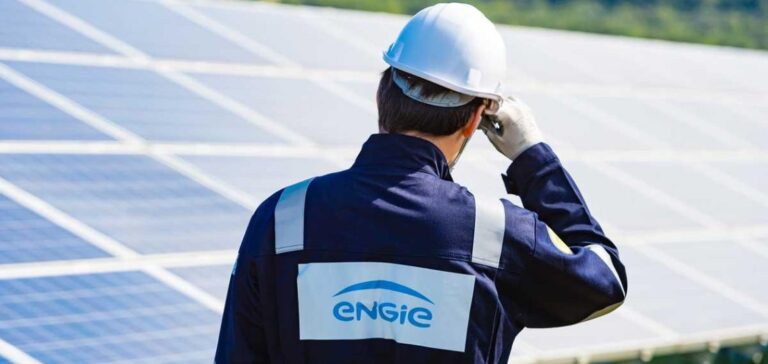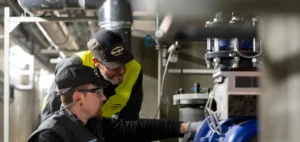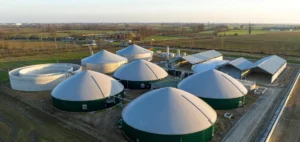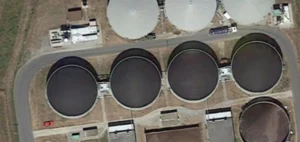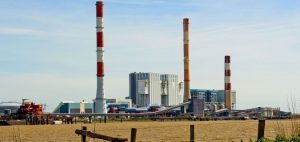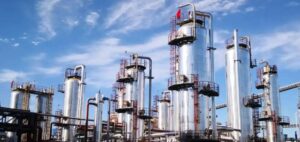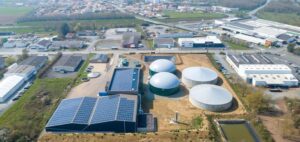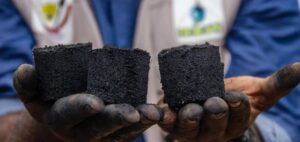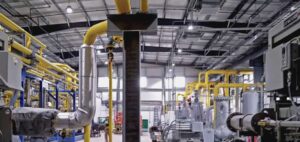Engie would like to see the development of hybrid boilers – electricity and gas – and a reduction in VAT on biogas consumption. In response to the consultation launched in early June by the government to find solutions for reducing CO2 emissions from the building industry.
Towards a hybrid future: Engie encourages the combined use of gas and electricity
Engie, France’s leading natural gas supplier, is “promoting hybrid solutions” that “combine gas and electricity” to replace end-of-life gas boilers, the gas group’s deputy managing director of infrastructure activities Cécile Prévieu told the press.
A response to the “boiler war” between energy suppliers. From boiler manufacturers and consumer associations to the government, the consultation is due to end on Friday. Since 2022, new building regulations (RE2020) have prohibited the installation of gas-fired boilers in new homes. For the existing fleet, the aim is to replace all gas-fired boilers in France by electric heat pumps by 2026 (i.e. almost 12 million). This target was deemed untenable by the building trades. As well as too expensive by the consumer association UFC Que Choisir.
The solution combining a high-performance gas boiler with an electric heat pump with intelligent regulation, encouraged in neighboring gas-producing countries such as Germany, Italy and the Netherlands, according to Engie. This would reduce the sector’s energy consumption by 40% and CO2 emissions by 70%, according to the energy company.
“Domestic hot water would come from the heat pump, as well as part of the heating during the shoulder seasons, and we’d switch to gas for peak winter calls, which would avoid overtaxing the French electricity system in winter, while avoiding imports of carbon-based electricity,” Prévieu argued.
In particular, Engie is betting on “strong growth in biomethane” in France. At 2% today, the volume of green gas consumed in France could rise to 20% by 2030. According to the company, there are four different processes: methanization, pyrogasification, e-methane and hydrothermal gasification. To lower costs for end consumers, Engie is asking the French government to make a financial effort. Firstly, to “extend the Coup de pouce heating bonus” to hybrid boiler installations. Then maintain a reduced VAT rate for the installation of very-high-efficiency boilers in non-compatible housing. And propose a reduced VAT rate on the supply of biomethane when it represents more than 50% of the gas used.

